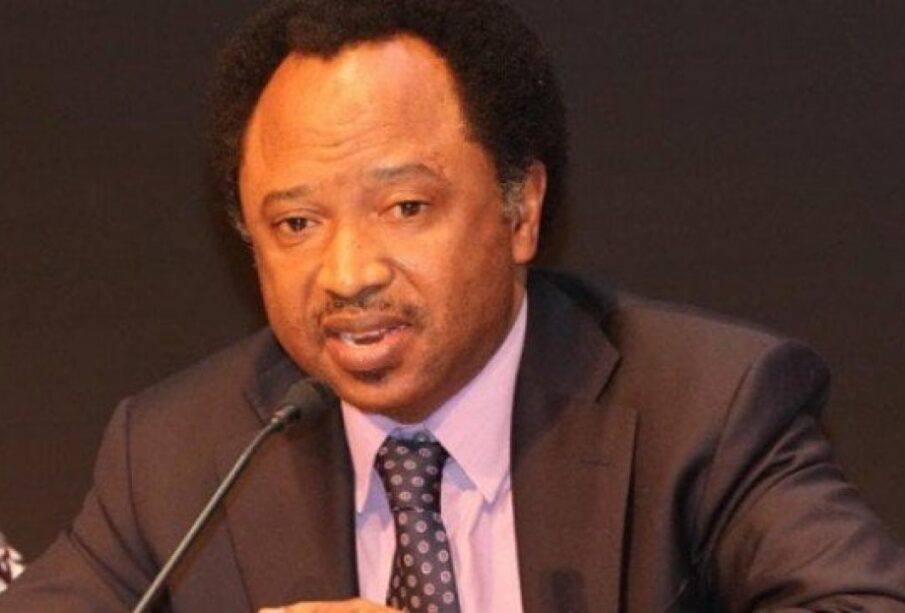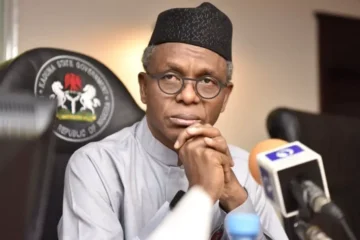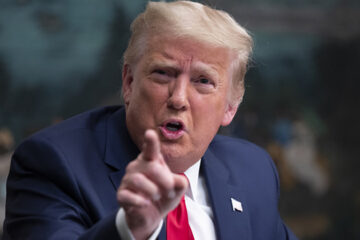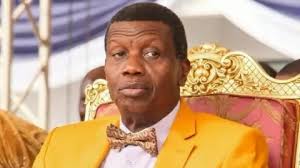Nigeria has everything a nation should have except visionary leaders – Shehu Sani

Sheu Sani
A federal lawmaker, who represented Kaduna Central Senatorial District in the Eighth National Assembly, Shehu Sani, was a guest on Channels Television’s Politics Today programme during the week. He spoke on a number of national issues, dissecting the problems and proferring possible solutions to the socio-economic challenges confronting the nation.
Excerpts:
Labour said the protest was largely about hunger, the Federal Government says NLC led by Joe Ajaero is not sincere. What do you make of Labour’s stance against FG’s position?
First of all, it’s necessary that we understand that Labour represents the interests, the aspirations and the rights of Nigerian workers. They have that mandate to speak in defence of the interests of the Nigerian workers, advance their dreams and expectations, and the government has a responsibility, as a constituted authority, to implement programmes and reforms.
Now, the area of contention here is the economic reform policy which has now touched on the lives of people and has created problems for so many people. Well, naturally and in history, whenever you have an economic reform, there is bound to be consequences of that reforms. It has happened when Margaret Thatcher took over office in 1979-80. She implemented reforms in Britain and led to a number of issues. And then Xiaoping in China where he took over the same thing with Mahathir Mohammad in Indonesia and several others in Brazil and Argentina. But what those in the positions of power need to understand is that when you are implementing economic reforms, you may most anticipate the crisis, and the issues that were arisen out of it and then you make provisions to address it.
However, the government in power today has inherited some problems which it was not responsible for and there are also mistakes it has made. The problem it has inherited is that what is going on in Nigeria today, if the (Muhammadu) Buhari administration in the last eight years has implemented those reforms, then we could have been reaping the benefit of it. For eight years, he could have removed subsidy. For eight years, he couldn’t stabilise the naira. And the way we were going about it is that pumping billions, then trillions, then borrowing to subsidise petroleum products. And then secondly, money is being pumped in to also subsidise the naira. If all these things were done, but it’s the same party.
Buhari handed over (to President Bola) Tinubu and they have said so many nice things about him (Buhari). They have praised him, they have eulogized him and said so many good things about him. Recently when a book was launched, praises upon praises on Buhari’s administration and then the same people who praised him will now come and see that this is what he has done wrongly. But we must be very practical and realistic with ourselves. The problems we find ourselves today originated, was engineered, fabricated and sustained by the Buhari administration.
The Buhari administration institutionally (and) fundamentally destroyed the Nigerian economy, and when Tinubu took over power, he knows that there was not going to be a subsidy and to be realistic, he was very frank during his campaign. He said I am going to remove subsidy and whatever protests that will come out of it, I will not back down. This is all on record and the people went ahead and voted for him. So, he has not deceived Nigerians now that he is in power. We are paying the price for the mistakes of the past or the failure of the past and for what we refused to do in the past. This is the reality. Labour has the right to protest but Nigeria (Federal Government) should not fear labour protests. The protest that should be feared is the one that will be organised by unorganised civil society. Labour protests come with notice and come with specifications and come with control – we are going to have a protest and it’s going to last for two days and we are going to lead it and we’re going to call for a suspension.
This is not labour-oriented at all.
I know, the protest that took place was a labour protest led by the Nigerian workers. But the one that should be feared is the one that will be organised by an unorganised society where the people who are hungry will now come out on the street. It is not going to be a two-day affair and it’s not going to be led by anybody, it’s going to be people in the streets. For now, this has happened, and lessons should be taken.
We must address the problems of poverty, of inflation, of hunger in the country. In this state today, people can’t pay their rent, people can’t pay the tuition fees of their children, people can’t afford to eat. But these are consequences of the reforms. If this was done five, six, seven years ago, we couldn’t have been where we are but today, Tinubu is in a dilemma. He has two options. The first one is to implement reform, lose popularity and then put Nigeria on the right trajectory for the future. The second one is to do what other governments – pumping money to subsidise petroleum products, pumping money to shore up the naira and then we reach a point where we can’t go further. We have had a trickle of this in 1985 when SAP, the Structural Adjustment Programme of Babangida was introduced and people woke up in a day and see IMF policies implemented sector by sector and there was protest if you have not forgotten. So, this is where we are today, things we refused to do in the past, we are now facing the reality of it.
If the President has to do something there has to be some low-hanging fruits that will get the lives of people going again. People are unable to meet their family needs because of these socio-economic problems of the country. If there’s something that needs to be done urgently, what do you think should be?
You see, our problems are manmade and homemade. Our problems are ourselves. This is a country that has almost a land mass of over 900,000 square kilometres. We have 200 rivers in Nigeria. From the North to the South-East to the West, we have well-nourished arable lands that are good for agriculture. What can grow in Brazil can grow in Nigeria, what can grow in Thailand can grow in Nigeria, what can grow in Vietnam can grow in Nigeria. But we kept aside all these things, we are expecting Manna.
We import everything we want. God has given Nigeria everything it needs. Saudi Arabia has no river, but they are not hungry and they take care of everything. Look at what’s happening with Israel. I think they were the last people who had Manna, they were not expecting Manna and they were not anticipating any Manna. Everything you can think of that God needs to give to a nation, He has given to Nigeria. But we have not been able to have visionary, courageous and bold leaders that will connect our resources, our wealth, and our people with our future. So that has been the problem.
Successive leaders have failed this country; they refuse to implement bold reforms out of fear of consequences. The issue is that if all these reforms had a time span to which we say we are going to suffer for one year and then from there, we’ll see the benefit of reform, that will be fine. But the point is that you can’t continue to make sacrifices and it becomes one-sided because from what is happening here, it appears as the poor are the ones who are sacrificing as people in authority don’t seem to be paying any price. Everyone is living a normal luxurious life.
In nations that you see sacrifices – In Iran, all their refineries are working. Cuba has been under sanctions since 1969 or 59, but all their facilities are functioning. When a leader says make sacrifice, let the sacrifice be seen in the lives of ministers, in the lives of governors, in lives of senators, in the lives of people in positions of power. But when sacrifice is only demanded of those in the lower strata of society, this is the kind of problem we’re going to have.
On the Oronsaye Report, it says the government is too bogus, too expensive to run for meagre resources that is coming into the national coffers. People like Mr Peter Obi and Mr (Femi) Falana, for example, have commented on the government’s move. Do you agree with Mr Falana?
Falana is 100% right. But let me tell you this from this perspective, most of these commissions were created by the National Assembly. When you are elected into office as a Senator or as a member of the House of Reps, one of the factors that we used to gauge your performance or your stewardship in office is the number of bills you can sponsor and also the number of federal agencies that come out from your bills. And as such you see every year, the lawmakers come out with all sorts of ideas on commissions on agencies, on boards on bureaus, on so many things. But we don’t take cognizance of the fact that we are a poor country, a nation of 224 million people with such little resources. Some of the agencies that we create in this country are so irrelevant and useless. And it is time actually to implement the Oronsaye Report. The Oronsaye Report could have been updated, the President could have invited Oronsaye and his committee or embellish more, create more committee, I mean, invite more people into the committee, appoint them and then invite Orosanya and say update your report based on the fact that new commissions, agencies have been created after this report.
Since then President Goodluck Jonathan’s period when the report was submitted, look at what happened.
The recommendation says prune down the number of agencies from 263 to 151 at the time.
But from that time till now, the number of ministries, departments and agencies has increased to 1,316. So every other year, we were creating an average of 300 ministries.
If you live in Abuja, there is hardly any street you will move without seeing an agency you never know the name of it in your lifetime. It’s either one commission on this or agency on this or this and that. Now this is what we do, not only in Abuja, but we set off zonal offices in all the six geopolitical zones. And then we set off state offices, all expanding bureaucracy, the bureaucracy that we have to fund. Now look at the number of these agencies that came after Oronsaye. I believe that the only way to do justice to this is to invite Oronsaye, he has done a beautiful job, to update his report, then from there, to be implemented. Government needs to understand this, creating all these multitude of agencies will not solve problems. Almost 55% of most of these agencies are in rented apartments and engaging in duplication of responsibilities. For example, what is the difference between National Human Rights Commission and Public Complaints Commission? You look at it. They are all about human rights, they are all about people submitting petitions and then an agency of government pursuing their issues. So if we are going to do a realistic reform, then it has to be fundamental.
And again, if the ruling party had made promises of restructuring, which is a reset or reconfiguration of Nigeria. But it has not happened under Buhari administration. And it is expected that the Bola Tinubu, coming from that background, we should have seen steps being taken to restructure this country. Restructuring this country will not only cost the cost of governance but will make the country more efficient. When you have a nation that has a House of Representatives and the Senate. Senegal was able to abolish the Senate, the functions of the Senate and House of Reps are the same. The difference is that in the Senate, we confirm the appointments of Mr President and they don’t do it in the House of Reps, other than that, it’s the same. Now you have 360 people and 109 people all serviced by the state in tens of billions of naira. So if we are going to cut the cost of governance, it is not going to be about merging ministries or harmonising bureaucracy.











